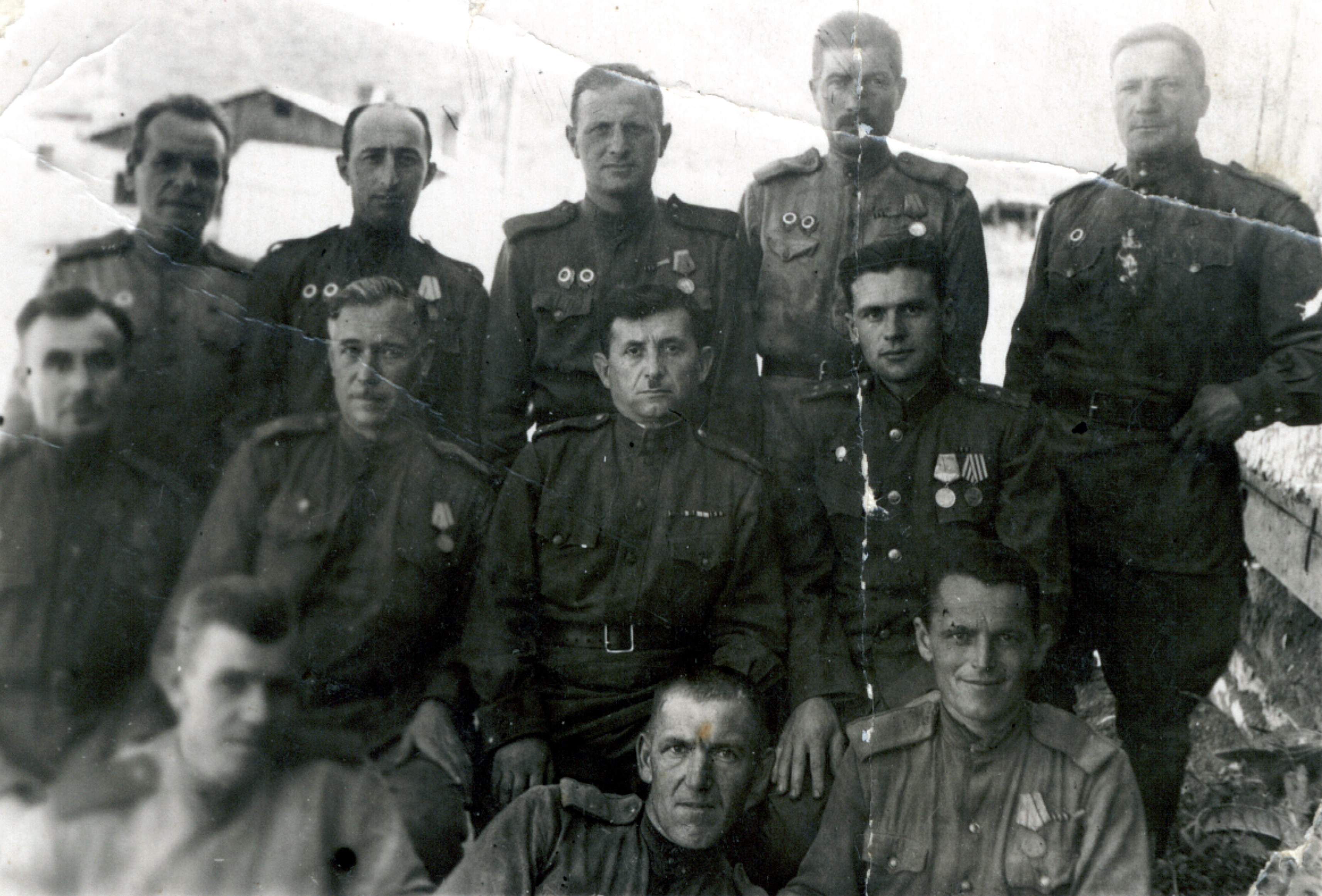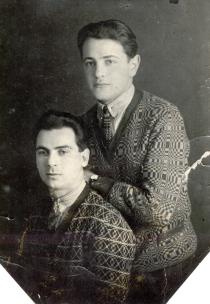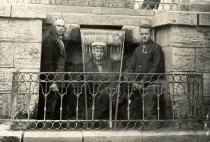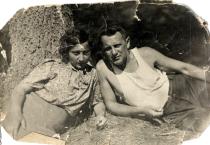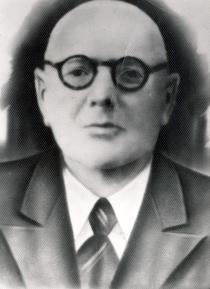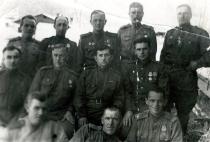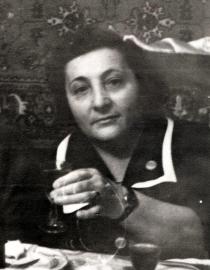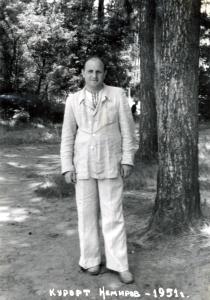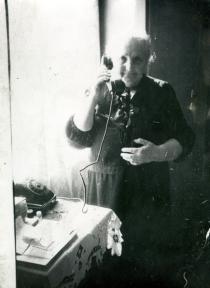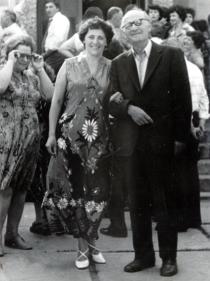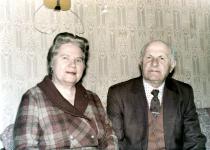My fellow soldiers and I (upper row, in the center). The photo was taken at Ilovaya station in 1943. We posed for this picture before fighting. I sent this photo to my parents in Skvira.
I moved to Kiev with my family in 1938. In 1940 I got a job in the military residential neighborhood in Sviatoshyno. I had a higher salary, and it was easier to commute to work.
On 22nd June 1941 I was working. I was going to work by tram. It was early morning and I heard explosions all the time. Of course, I had no thoughts about a war. There were frequent military trainings at that time. When I came to work my colleagues told me that German planes were bombing the Post-Volynskiy railway station and a plant in Sviatoshyno. The commissar of the military unit offered me to join their military unit, but I refused and went to our district military office. I received a subpoena on 24th June. My daughter turned 4 that day. The following day I went to the recruitment office. I was sent to the 38th army of the South Western Front chief sanitary storage facility. We obtained medication in the hospital in Pechersk and began to form a sanitary train. I had enough time left to send my family into evacuation. It didn't matter much where they went to as long as the location was far from the war scene and out of reach of the fascists. I put my wife and daughter and my wife's mother, who came from Skvira, on a train. I didn't know where it went.
We moved our medication storage facility to Poltava [350 km from Kiev]. From there we went to Lyski station, Voronezh region, and then to Stalingrad. We were following the front line picking up the wounded and supplying medication to field hospitals. This lasted for two years. In 1943 we stopped at the town of Krasnaya Sloboda, near Stalingrad, only on the opposite bank of the river Volga. Stalingrad was already on fire. We had hardly any food. Several people had to share one piece of dry bread. We didn't have enough water. The river was covered with a thick layer of oil from oil storages blasted by the Germans. One evening the chief of headquarters told four of us to cross the Volga and bring bandaging material from the storage facility. The Volga was on fire. We crossed it and stayed overnight at the storage facility. We found a lot of bandaging material, loaded it on the boat and went back. I was awarded a 'medal for courage' for this mission. Stalingrad was a turning point in the course of the war. We proceeded to Konigsburg and further on. We were continuously on the front line. I used to take medication directly to the front line. On 9th May 1945 I was on a train heading to the Far East. It took us 30 days to get there.
I didn't have any information about my family. During the war with Japan I was in Kharbin, Manchuria. In autumn 1945 the war was over and we got on our way back. We were stationed at Grodekovo station near Ussuriysk [about 3,500 km from Kiev]. From there my manager sent a letter to the evacuation agency in Buguruslan requesting information about my family. We got a response from them saying that my wife and daughter were in Samarkand, Uzbekistan. I wrote to my wife and got a response from her, in which she said that she had married another man. She probably thought that I had perished having had no information about me for almost six years. My wife and daughter didn't want to come back. It was a blow to me.
